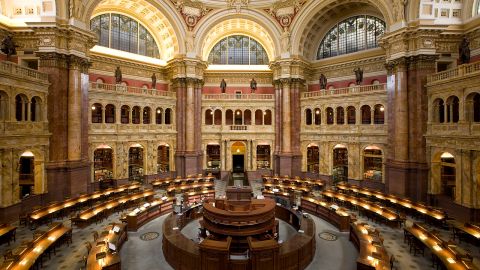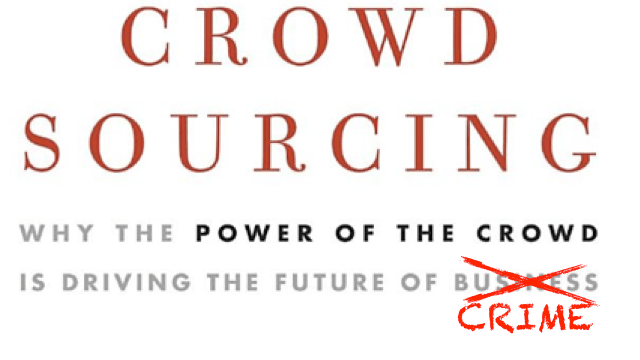American Secularism and Christian Tolerance

My recent post on the godlessness of the Constitution has attracted some attention. Over the weekend, I came across a reply from another of Big Think’s bloggers: Peter Lawler, a professor of government and international studies at Berry College and a former member of President Bush’s Council on Bioethics, whose blog is Rightly Understood.
Prof. Lawler writes about the “complacently atheistic tone” of my article (I wish I could afford to be complacent! I like to think of myself as non-complacently atheistic), and says:
My position will be, of course, somewhere between the “Christian nation” view of some dogmatic evangelical thinkers (such as those who don’t think a Mormon is fit to be president) and the “Godless republic” view of some dogmatic evangelical atheists who claim to revel in the daylight of disbelief.
Just to be clear, I never said the Constitution was an atheist document. I do maintain that it’s a “godless” document, in the sense that it never mentions, much less claims to justify itself by reference to, the existence of a deity. “Secular” would be another apt word here. But, pressing on: Lawler doesn’t dispute that the Constitution is silent about God’s existence. However, he audaciously, and rather implausibly, argues that this in itself reflects a Christian view:
The most noble and truthful Lockean interpretation of the Constitution of 1787’s silence on God is that it’s anti-civil theological…. Our Constitution, from the latter view, presupposes that the Christian view of the person and the God in whose image he or she is made is true.
For Locke, as for the Christians, both the individual and the church are autonomous — or free from political coercion to determine the truth about the free being’s duties to his or her personal Creator.
I agree that this was John Locke’s view, and the American founders’ view as well. But was it the Christian view? Lawler provides very little evidence that this is so, and there’s considerable evidence that mitigates against it.
To take the most obvious, if it’s indeed true that “Christianity established the principle of the limitation of government by personal freedom”, why was this principle not in evidence during the fifteen hundred or so years prior, when Christian kings, popes and emperors ruled the Western world? Throughout all those centuries, it was the assumed norm that the ruler had the absolute right to decide what his people would believe and how they would worship.
Prof. Lawler’s official bio says that he “writes broadly from within a Catholic intellectual tradition”. That being the case, I’m sure he’ll be familiar with the following documents. One is the papal bull Unam Sanctum, issued by Pope Boniface VIII in 1302. The document discusses the two “swords” of spiritual and temporal power, and proclaims that the state was to be subject in the church in all things:
Both, therefore, are in the power of the Church, that is to say, the spiritual and the material sword, but the former is to be administered for the Church but the latter by the Church; the former in the hands of the priest; the latter by the hands of kings and soldiers, but at the will and sufferance of the priest.
But, you might say, that was in 1302. Times change! Surely, by the time of the Enlightenment, the Catholic church was no longer teaching such an illiberal view. Let’s put that to the test with the encyclical Mirari Vos, issued by Pope Gregory XVI in 1832:
This shameful font of indifferentism gives rise to that absurd and erroneous proposition which claims that liberty of conscience must be maintained for everyone. It spreads ruin in sacred and civil affairs, though some repeat over and over again with the greatest impudence that some advantage accrues to religion from it. “But the death of the soul is worse than freedom of error,” as Augustine was wont to say. When all restraints are removed by which men are kept on the narrow path of truth, their nature, which is already inclined to evil, propels them to ruin.
…We must include that harmful and never sufficiently denounced freedom to publish any writings whatever and disseminate them to the people, which some dare to demand and promote with so great a clamor. We are horrified to see what monstrous doctrines and prodigious errors are disseminated far and wide in countless books, pamphlets, and other writings which, though small in weight, are very great in malice.
Thirty years on, there’s Pope Pius IX’s 1864 Syllabus of Errors, which listed a variety of statements which were all condemned as heretical. Here’s one of the statements it contains which, according to the Catholic church, is an error and a heresy:
Every man is free to embrace and profess that religion which, guided by the light of reason, he shall consider true.
Even as late as 1906, Pope Pius X wrote in Vehementer Nos:
That the State must be separated from the Church is a thesis absolutely false, a most pernicious error.
Granted, the church did retreat from this absolutist stance with the 1965 Dignitatis Humanae. But the point remains: In the era of America’s founding, popes were still fiercely condemning religious tolerance and secularism as pernicious heresies. (In fact, as late as 1781, the year Thomas Jefferson wrote Notes on the State of Virginia, the Spanish Inquisition was still burning heretics.) I didn’t cite the views of influential Protestants in this essay, but could just as easily have quoted them to similar effect. And again, as I pointed out in my original essay – if its implicit Christianity was widely understood, why was the Constitution attacked for being insufficiently godly?
When given the opportunity, Christian rulers persecuted, tortured and butchered dissenters to the fullest of their ability (as indeed most religious rulers have done). It was only during the Enlightenment, in a population wearied by perpetual religious war, that a few brilliant thinkers conceived of the idea of religious freedom and secularism as a way to stanch the bloodshed. Once the ideas of democracy and human rights became solidly established, then the religious authorities adapted to them, changed their views, and proclaimed that they had been in favor of them all along. Far from Christian beliefs inspiring the Constitution, the opposite is true: it was the Constitution, and the ideals of democracy more generally, that have been a liberalizing and civilizing force on the Christian church.
Image: Library of Congress main reading room, via Wikimedia Commons





